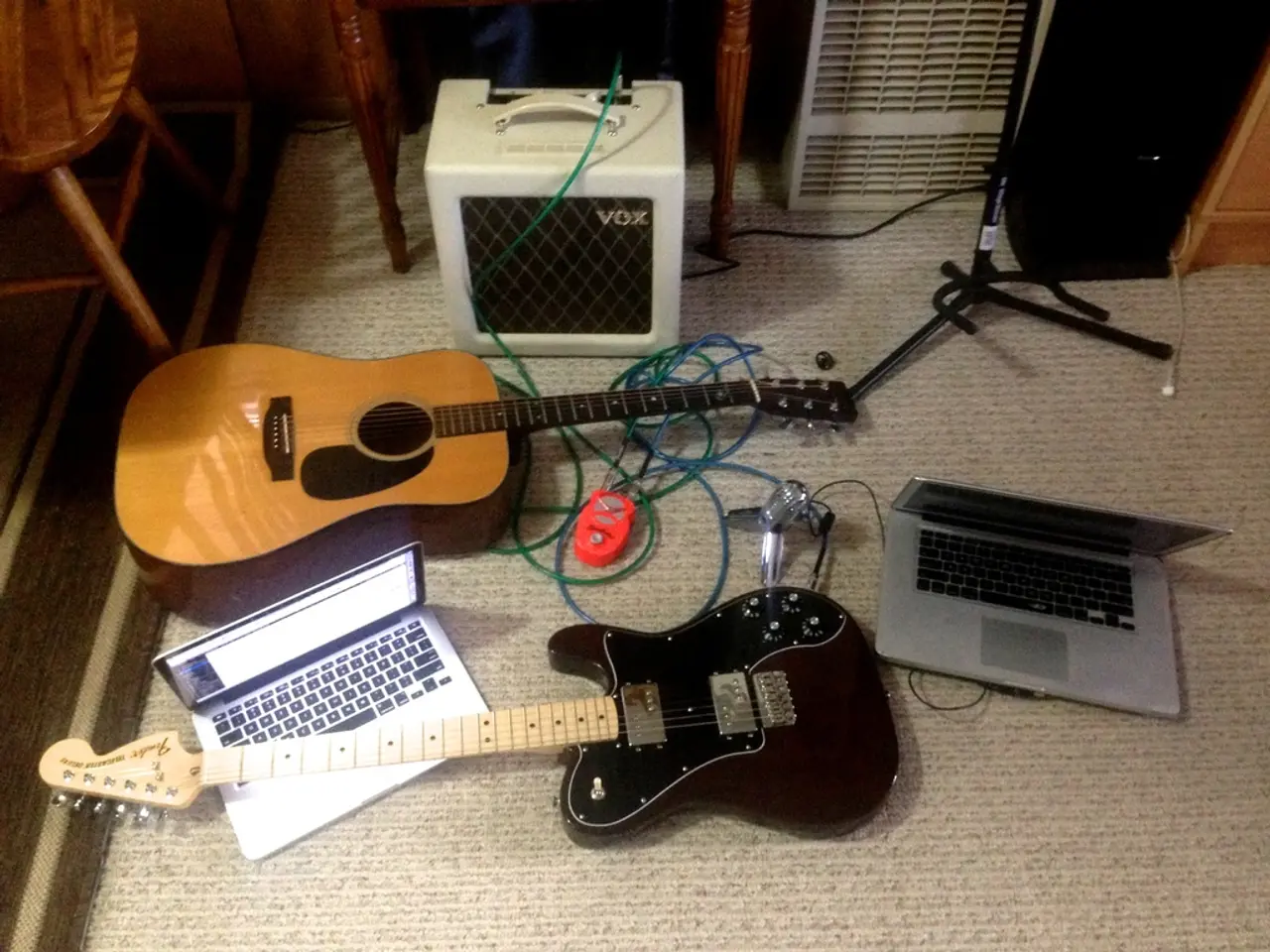Essential Topics Indispensable for Achieving Success in Sound Engineering
In the ever-evolving world of entertainment, sound engineers play a pivotal role in creating the sonic landscapes that captivate audiences. From broadcasting and post-production to live events and film, sound engineers are the unsung heroes behind the scenes.
A career in sound engineering typically involves a blend of theoretical knowledge and practical skills related to audio technology, recording, and production. College courses often focus on these areas, providing a solid foundation for aspiring sound engineers.
**Theory of Sound** is a fundamental course that delves into the physics behind audio, teaching students about decibels, frequency, sound waves, and more. Understanding the science of sound is essential for sound engineers, helping them make informed decisions about equipment and techniques.
**Basic Audio Techniques** courses equip students with hands-on skills, teaching them how to use microphones, signal routing, equalization, and creating balanced audio mixes. This practical knowledge is often gained through lab work with mixing boards and digital audio workstations (DAWs).
**Advanced Audio Techniques** courses delve deeper, exploring the use of computer hard disk recording, MIDI, plugins, effects, and signal processors. Mastery of these tools is crucial for sound engineers looking to stay ahead of the curve.
**Audio and Acoustic Fundamentals** courses provide students with the fundamental principles of sound and acoustics that inform practical engineering work. Understanding these principles is vital for sound engineers, helping them create the ideal sound environments for various projects.
**Music Industry Introduction** courses offer context about the music industry's operations, which is useful for sound engineers working in commercial settings. Knowledge of the industry can help them navigate the business side of sound engineering and make informed decisions about their careers.
**Live Sound Engineering** and **Studio Recording & Production** courses focus on the technical aspects of live events and studio recording, mixing, and audio manipulation. These courses are invaluable for sound engineers working in live settings or in recording studios.
**Internships/Hands-On Experience** are a crucial part of academic preparation, offering students the opportunity to gain real-world experience with audio recording equipment and projects. Practical experience is invaluable in the competitive world of sound engineering.
Programs often award degrees or concentrations such as Bachelor of Music (Mus.B.), Bachelor of Business Administration (B.B.A.), or Bachelor of Science (B.S.) with a focus on **Audio Recording Technology**, Music Production, or Sound Engineering.
Some reputable schools and programs offering comprehensive sound engineering/music production education include Five Towns College, colleges with programs including Audio and Acoustic Fundamentals, Recording Arts certificates, and Music Industry studies, and prestigious universities like Carnegie Mellon University and Berklee College of Music.
In addition to academic qualifications, gaining practical experience through internships or apprenticeships can be invaluable. Networking with professionals can lead to job opportunities, mentorship, and industry insights.
As digital platforms prioritize exceptional audio quality, the need for talented sound engineers grows in both traditional and digital media. Opportunities are expanding, with a growing demand for high-quality audio experiences in live events, podcasts, and online content.
In sound in interactive environments like video games and virtual reality, sound engineers need to create sound effects that respond to user actions. Immersive audio technology is a crucial trend, shaping the way we experience audio in fields like VR and AR in gaming and films.
In live sound and event production, sound engineers are responsible for setting up sound systems at concerts, theaters, and festivals. Understanding the intricacies of audience dynamics and sound system design is essential in live sound and event production.
Building a career as a sound engineer involves both educational qualifications and practical experience. Attention to detail is crucial, especially for elements like background music that build tension or joy.
In conclusion, pursuing a career in sound engineering requires a blend of theoretical knowledge and practical skills. Courses in audio technology, music production, and electronics provide a solid foundation, while practical experience through internships or apprenticeships offers invaluable real-world experience. With the growing demand for high-quality audio experiences, the future looks bright for aspiring sound engineers.
- Sound engineers, instrumental in crafting the soundscapes that enthrall audiences, find themselves in a competitive world that includes broadcasting, post-production, live events, and film.
- To excel in this field, students might opt for a college education focusing on audio technology, recording, and production, with fundamental courses like Theories of Sound and Basic Audio Techniques.
- These courses delve into the science of sound, microphone usage, signal routing, equalization, and creating balanced mixes, while gaining hands-on experience using mixing boards and digital audio workstations (DAWs).
- As they progress, students can explore the use of computer hard disk recording, MIDI, plugins, effects, and signal processors in advanced audio techniques courses.
- Concurrently, education in the music industry's operations can help sound engineers navigate the industry's business side and make informed decisions about their careers.
- To supplement academic learning, internships or hands-on experience with real-world audio recording equipment and projects offer valuable practical experience vital for success in this ever-evolving and expanding field.




